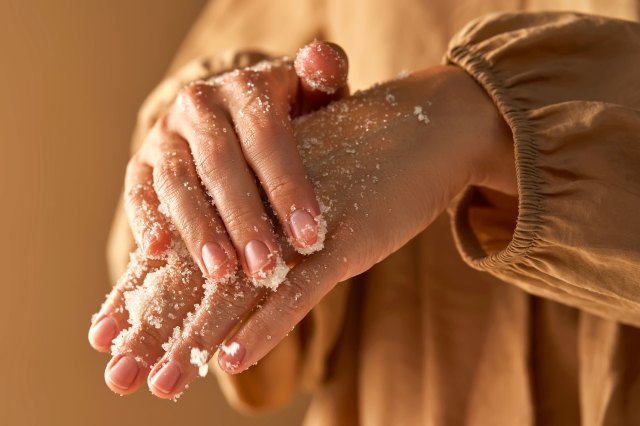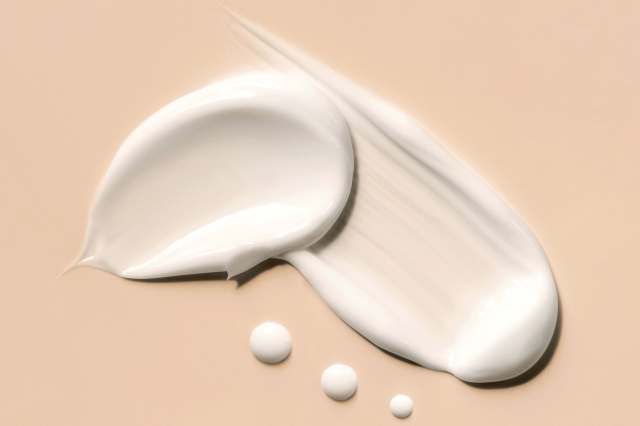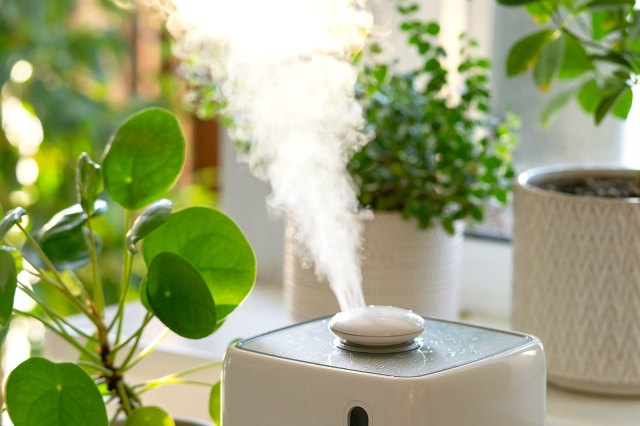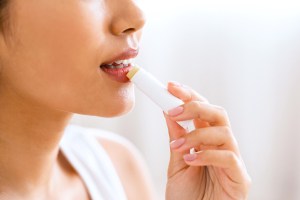No one likes to deal with dry, flaky skin, but many of us have to anyway, whether because we love scalding hot showers, live in an area with low humidity, or have a condition such as eczema or psoriasis. The severity may vary, but dry skin typically looks patchy or cracked and may feel tight, itchy, or uncomfortable. Fortunately, there's a lot you can do at home to restore moisture to your skin, beyond just slathering on lotion every five minutes. (Though that probably can't hurt.) Here are nine suggestions.

Exfoliate Often
It’s important to exfoliate for a number of reasons, the first being to remove all of the dry and dead skin that causes unsightly flaking. Exfoliating also helps to reveal and rejuvenate the healthy layer of skin underneath. Steer clear of exfoliants that contain harsh chemicals such as alcohol, though. Instead, opt for oil-based exfoliants, which keep the skin hydrated and protect against flaking. After exfoliating, wash your skin with lukewarm water, as water that’s too hot or cold may worsen dryness.

Take Cooler Showers
Speaking of water temperature, hot showers are among the worst contributors to skin dryness. While it may be tempting to crank up the heat, hot water actually washes away the essential oils that keep the skin hydrated. Try lowering the temperature of your shower, and be sure to limit your bathing time, as long showers have a similar drying effect at any temperature.

Use Emollient Creams Overnight
Caring for your skin means being proactive, and one of the best ways to do that is by applying moisturizers that your body can absorb while you sleep. Emollient creams and ointments are particularly effective, because they create a film on your skin’s outer layer that acts as a barrier to seal in moisture and soften scaly, dry patches. Apply an emollient cream just before bedtime and let it soak into your skin overnight.

Moisturize After Washing
While it’s important to moisturize throughout the day, it’s especially critical to do so after a shower or bath, when your skin has just absorbed plenty of water. You want to seal in all that hydration before it evaporates , so resist the temptation to dry off with a warm towel and then step directly into a pair of pajamas. Instead, apply a moisturizer to your entire body while your skin is still damp — and then cozy up to your heart’s content.

Avoid Harsh Materials
Itchy materials such as wool may further irritate already-dry skin. Steer clear of coarse, rough fabrics, especially on colder days when your skin is particularly susceptible to chafing. Instead, layer loose, comfy, breathable apparel such as shirts made of 100% cotton.

Apply Sunscreen
Don’t be fooled by gray skies — the sun’s UV rays can still creep through on even the cloudiest days. If you’re planning to go outside, apply sunscreen 20 minutes before heading out the door, and be sure to cover every bit of skin exposed to the elements, including your lips. Otherwise, you risk burning and drying out your skin.

Use Humidifiers
When indoors, it’s important to maintain a good humidity level to keep skin hydrated and avoid aggravating conditions such as eczema. The Mayo Clinic recommends a humidity level between 30% and 50%, as anything higher increases the risk of mold developing in your home and on your furniture. Install humidifiers in every room of the house to keep those levels even.

Wear Gloves in Cold Weather
Dry skin tends to be worse in winter, when the temperatures are cooler and humidity is lower. Our hands are particularly susceptible to dryness, due to how often we wash them, constant exposure to the elements, and the ways in which we use them to handle various things throughout the day. That’s why it’s essential to protect them in frigid weather by wearing gloves. Gloves protect your hands from direct contact with wind, cold, and potentially hazardous chemicals — all of which can dry out your skin. Try applying a hand cream before you don your gloves, to seal in a bit of extra moisture.

Consult Your Dermatologist
Everyone’s body is different, and not all dry skin can be treated with home remedies. You may have an undiagnosed skin condition, which is why it’s important to consult a dermatologist and go for annual exams. Don’t self-diagnose; instead, reach out to a doctor who may be able to prescribe specific treatments for your dry skin.
This article is for general informational purposes only.
Affiliate Disclaimer Medical Disclaimer
















 Unique Beauty is free for all users.
Unique Beauty is free for all users.